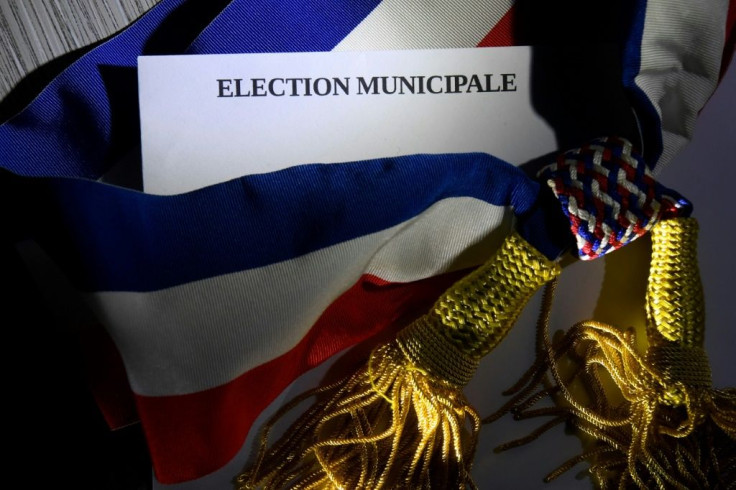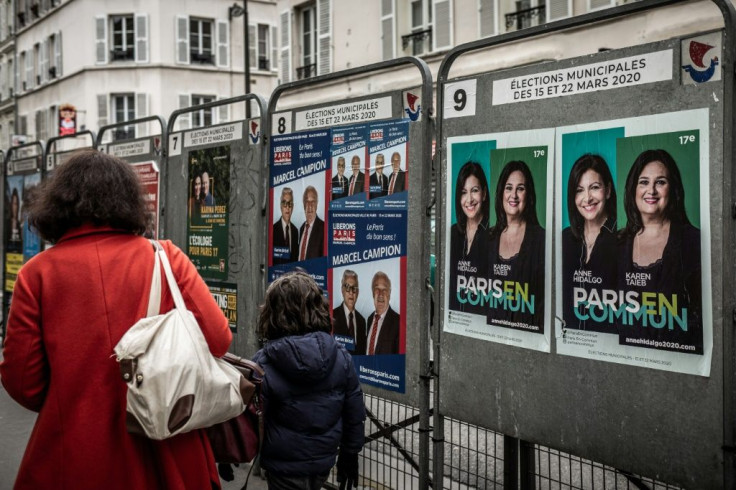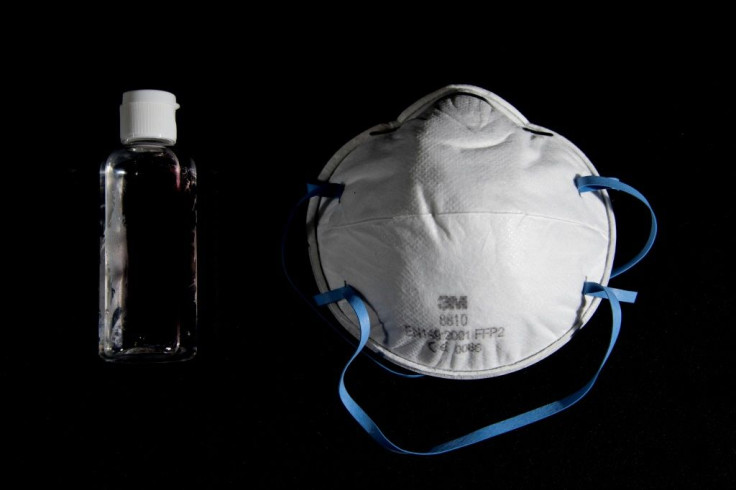Viral Vote: Health Fears Cast Pall Over French Elections

Have you washed their hands? Would you kindly remove your face mask? And did you bring your own pen?
In addition to deciding who to vote for, these are the questions French voters may face when they go to the polls in local elections Sunday.
The nationwide vote is taking place under anything but normal conditions, with France battling the coronavirus that has already killed 33 and infected almost 1,800 in the country.
Yet the government has insisted that the elections -- seen as an important midterm test for President Emmanuel Macron -- will go ahead.
A slew of measures has been announced to reassure voters, with the virus threatening to lead to a lower turnout if people decide it is safer to stay home.
"Come vote with gloves, hair nets or masks, but come vote!" rightwing lawmaker Eric Woerth said on French television Tuesday, joining a chorus of politicians urging people to turn out.
France's 35,000 mayors are among the country's most respected public officials, but even in these races voter participation has been dwindling over the past three decades.
An Ifop poll released Sunday found that 28 percent of respondents might stay home because of the coronavirus risk, a figure that was even higher in larger cities.
Candidates have cancelled campaign rallies after large public gatherings were prohibited or strongly discouraged, although the government has rejected calls to postpone the vote.
On Tuesday, officials unveiled "rigorous protective measures" to limit the contagion risks, with Interior Minister Christophe Castaner insisting that "voting is not dangerous."

Officials have been told to disinfect voting booths and ballot boxes throughout the day, and sinks and hand gels will be made available.
However, "the right to vote cannot be refused to someone who refuses to wash their hands, since it could undermine the vote's legitimacy," the interior ministry said.
People will be urged to get in and out quickly to avoid lines, and floor markings will be laid out to ensure they stay one metre (3.3 feet) from one another.
If someone is wearing a mask, officials can ask them to remove it for an ID check if necessary.

Authorities have already eased proxy voting rules for people at risk or infected with coronavirus and ordered to confine themselves to their homes, as well as for people in retirement homes.
People can also come with their own pens for marking ballots -- the mayor of Montpellier, for his part, has ordered 320,000 pens so that voters will not have to share.
Analysts said that the virus could not just hit the turnout, but also skew the outcome of the vote, which is set to have a second round on March 22.
Interrupted campaigns and a higher abstention rate -- which reached 36.5 percent in the first round of 2014, the highest since 1983 -- could bolster incumbents, already well known to local voters.
"That could reinforce local parties who disagree with the head of state," said Jean-Daniel Levy, a director at the polling firm Harris Interactive.
Rightwing parties were the main winners in the municipals six years ago, and the far-right National Rally beat Macron's centrists in last year's European Parliament elections.
But lower turnout because of coronavirus fears would hurt conservative parties the most, since they tend to attract older voters most vulnerable to contagion, he said.
France has traditionally relied on volunteers to assist with voting and the official ballot counts, and virus fears could keep more people than usual from stepping up.
In Marseille, a city hall official said that "for now, retractions have been marginal, and parties have called for new volunteers."
Mayor Gerard Collomb of Lyon, however, was more cautious, telling AFP that "there are more and more people who say no" to helping out with counts.
And in the Alps commune of La Balme-de-Sillingy, where a cluster of the first coronavirus cases broke out, the mayor himself was hospitalised after testing positive.
Francois Daviet's town has since ground to a halt, with shops desperate for clients and many schools closed.
"I hope that people will go out and vote," he said, adding he was "confident" of finding the 20 controllers needed.
© Copyright AFP {{Year}}. All rights reserved.





















